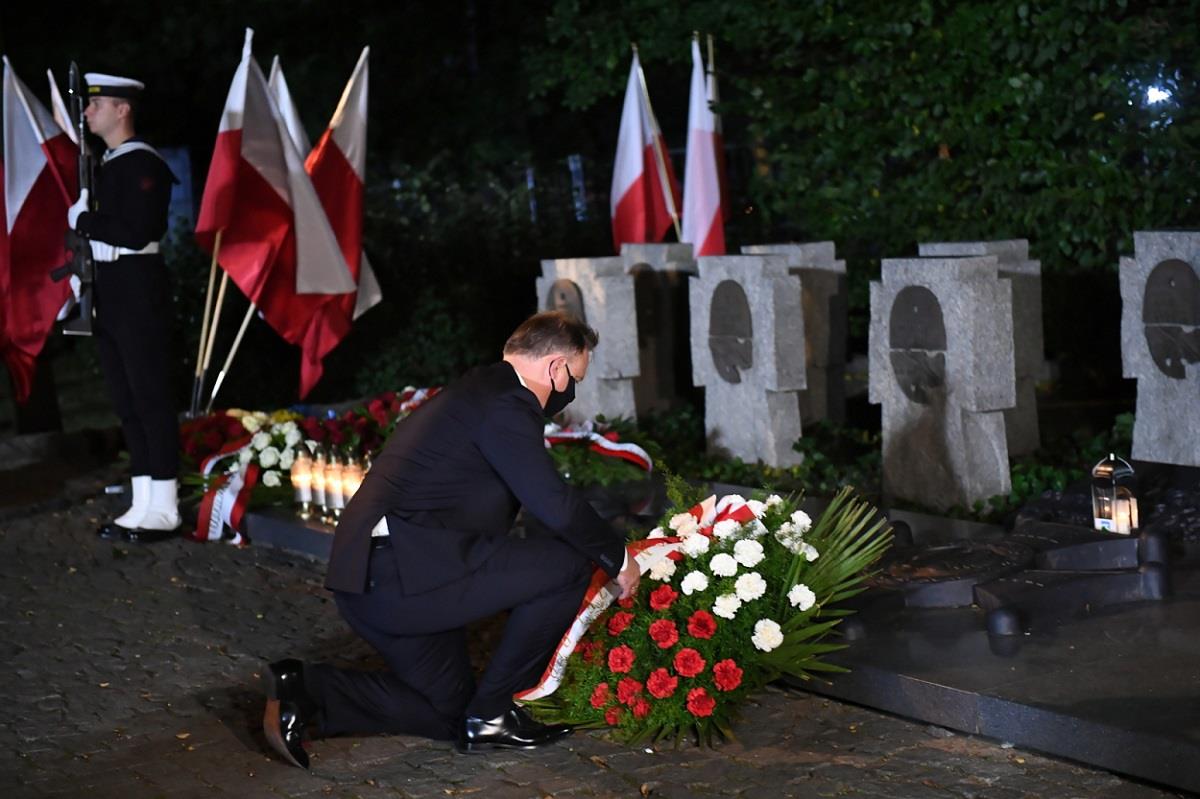WARSAW, Sept. 1 (Xinhua) -- Polish President Andrzej Duda took part in an early morning ceremony in Westerplatte, near Gdansk, on Tuesday to mark the 81st anniversary of the outbreak of World War II.
"Here on Westerplatte, Polish soldiers were under attack" by German troops, Duda said a few minutes before 5 a.m. local time. The German attack commenced at 4:45 a.m. on Sept. 1, 1939. "In Wielun (a small town nearby), German airmen barbarically dropped bombs on a sleeping town," he said.
During the ceremony, Duda officially handed over to relatives the official identification documents of soldiers whose remains were found last year during an archeological investigation.
Duda was joined by government officials, including Sejm (lower house) Speaker Elzbieta Witek, Senate (upper house) Speaker Tomasz Grodzki and Defense Minister Mariusz Blaszczak. This year's commemoration at Westerplatte was organized by the national government. In previous years, the local authorities held that responsibility. In 2026, the authorities plan to open a museum on the site dedicated to the German invasion of Poland.
The attack on Westerplatte 81 years ago and the ensuing German invasion of Poland marked the beginning of World War II. The shelling from sea and land of the Polish garrison there was followed by German infantry advances from the city of Danzig (now Gdansk), where the majority of the population at the time was German. The small Polish garrison held out for seven days before surrendering in a battle which both sides expected to last only hours.
During the clashes, local German paramilitaries also attempted to seize the Polish post office in the city itself, which led to a 15-hour armed combat between postal staff and German troops.
Both the Battle of Westerplatte and the concurrent defense of the post office serve as symbols of Polish heroism and patriotism today.
